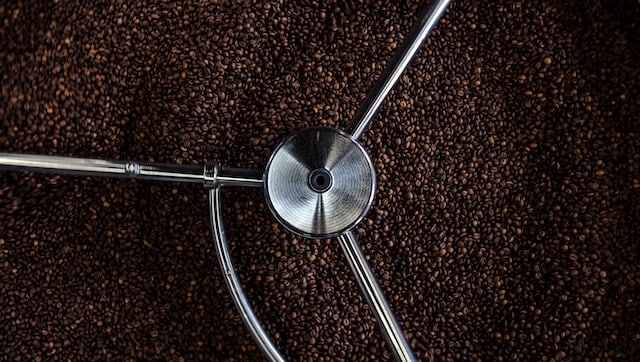Coffee benefits abound, including its richness in antioxidants and potential to lower disease risks. Nonetheless, its caffeine content, a stimulant, might pose issues for some individuals, leading to sleep disturbances.
Coffee is rich in vital nutrients and boasts a remarkable antioxidant content.

Beyond mere dark brown water, coffee holds a range of nutrients from the beans. An 8oz cup contains various vitamins and minerals like:
• Vitamin B2 (Riboflavin): 11% of the RDA.
• Vitamin B5 (Pantothenic Acid): 6% of the RDA.
• Vitamin B1 (Thiamin): 2% of the RDA.
• Vitamin B3 (Niacin): 2% of the RDA.
• Folate: 1% of the RDA.
• Manganese: 3% of the RDA.
• Potassium: 3% of the RDA.
• Magnesium: 2% of the RDA.
• Phosphorus: 1% of the RDA.
While the individual amount might appear small, when multiplied by your daily cups—whether 3, 4, or more—it accumulates into a notable portion of your daily nutrients. Yet, the true highlight of coffee lies in its abundant antioxidants. Surprisingly, coffee provides more antioxidants than both fruits and vegetables combined, especially for those following a typical Western diet.
It contains caffeine, a stimulant known to improve cognitive function and increase metabolic rate.

Caffeine stands as the world’s most widely ingested psychoactive compound. While soft drinks, tea, and chocolate also harbor caffeine, coffee prevails as the primary source.
The caffeine amount in a solitary cup fluctuates widely from 30 to 300 mg, with an average of approximately 90-100 mg. Functioning as a recognized stimulant, caffeine obstructs the action of Adenosine, an inhibitory neurotransmitter in the brain.
Caffeine works by inhibiting adenosine, leading to heightened brain activity and the release of neurotransmitters such as norepinephrine and dopamine. This combats fatigue and enhances alertness.

Multiple studies demonstrate its short-term cognitive benefits—improved mood, reaction time, vigilance, and cognitive function. Additionally, caffeine raises metabolism (up to 11% in calories burned) and can elevate average exercise performance by 11-12%.
Yet, certain impacts tend to be transient. With daily coffee consumption, tolerance develops, diminishing the potency of these effects. Additionally, there are drawbacks to caffeine, which I’ll address shortly.
Consuming coffee might potentially lower the chances of developing Alzheimer’s and Parkinson’s diseases.

Alzheimer’s disease stands as the prevalent neurodegenerative ailment, driving dementia rates. Research reveals that coffee consumers experience a remarkable 65% reduced risk of Alzheimer’s.
In the realm of neurodegenerative conditions, Parkinson’s follows closely, characterized by the demise of dopamine-producing brain neurons. Those who indulge in coffee show a substantial 32-60% drop in Parkinson’s risk, with risk diminishing as coffee consumption increases.
Individuals who consume it experience a significantly reduced likelihood of developing Type 2 diabetes.

Type 2 diabetes arises from heightened blood sugar levels owing to the body’s resistance against insulin. The prevalence of this condition has surged tenfold in recent decades, impacting over 300 million individuals.
Notably, those who consume coffee seem to exhibit a substantially diminished likelihood of contracting this ailment; certain investigations indicate a 23-67% lower risk among coffee enthusiasts.
A comprehensive analysis of 18 studies encompassing 457,922 participants found that every daily cup of coffee correlated with a 7% decreased susceptibility to type 2 diabetes.
Individuals who consume coffee experience a reduced likelihood of developing liver-related illnesses.

The liver, a vital organ with numerous functions, can be affected by modern factors like excessive alcohol and fructose consumption, leading to conditions like Cirrhosis. Cirrhosis involves extensive liver scarring.
Those who consume 4 or more cups of coffee daily have an 84% reduced risk of cirrhosis, while liver cancer, a major global cause of cancer death, sees up to a 40% risk reduction among coffee drinkers.
A significantly reduced likelihood of experiencing depression and suicide.

Depression is a highly prevalent issue, standing as the most widespread mental disorder globally, substantially compromising one’s life quality.
A 2011 Harvard study revealed a 20% lower depression risk among high coffee consumers. Similarly, a review of 3 studies found a 53% suicide risk reduction for those consuming 4 or more daily cups of coffee.
Several studies indicate that individuals who consume coffee tend to enjoy longer lifespans.

Considering that coffee consumers exhibit a reduced risk of various common fatal ailments (including suicide), the prospect of coffee contributing to a longer life seems plausible.
Compelling evidence supports this notion. A 2012 study in the New England Journal of Medicine analyzed the behaviors of 402,260 individuals aged 50 to 71, revealing that coffee drinkers had significantly lower mortality risks across the 12-13 year study span.
The optimal intake appears to be 4-5 cups daily, yielding a 12% risk decline for men and 16% for women. Delve deeper into this concept in the article exploring coffee’s potential to extend lifespan.
Caffeine has the potential to induce anxiety and disturb sleep patterns.

Discussing the downsides is essential. Excessive caffeine can trigger jitters, anxiety, and heart palpitations, especially for those sensitive to it. Sleep disruption is common too; avoid coffee after 2 p.m. if it affects your sleep quality. While diuretic and blood pressure effects usually diminish with regular use, a slight increase might persist (1-2 mm/Hg).
Caffeine is addictive, and skipping a couple of cups can result in withdrawal symptoms.

A concern associated with caffeine is its potential to induce addiction in numerous individuals.
Regular caffeine consumption can lead to tolerance, where its effects diminish or a higher dose becomes necessary. Upon caffeine cessation, withdrawal symptoms like headaches, fatigue, mental fogginess, and irritability emerge, typically lasting several days. These dynamics of tolerance and withdrawal characterize a state of physical dependence.
Regular vs. Decaf

Opting for decaffeinated coffee is a choice for some individuals over the regular brew. The typical method involves washing coffee beans with solvent chemicals.
During each cycle, a portion of caffeine dissolves in the solvent, and this process is reiterated until the majority of caffeine is extracted. Nonetheless, it’s crucial to note that decaffeinated coffee does contain a reduced amount of caffeine compared to the regular version.
Regrettably, not all the health benefits linked to regular coffee extend to the decaffeinated variant. For instance, certain studies indicate that decaffeinated coffee might not offer the same risk reduction for type 2 diabetes, Parkinson’s, or liver ailments as regular coffee does.
How to maximize coffee benefits

To optimize coffee’s health benefits, refrain from adding unhealthy elements like sugar or artificial creamer. Opt for paper-filter brewing to reduce cafestol, which can raise cholesterol. Avoid calorie and sugar-laden drinks found at places like Starbucks for a truly healthy choice.
Is consuming coffee a good choice for you?

While coffee offers health benefits, certain individuals like pregnant women should limit consumption. People with anxiety, high blood pressure, or insomnia could consider reducing coffee intake temporarily. Slow caffeine metabolizers might face increased heart attack risks. Despite this, coffee seems beneficial for most, yet it’s not a reason to start if you don’t already. If you already enjoy coffee, its advantages seem to outweigh the downsides.

